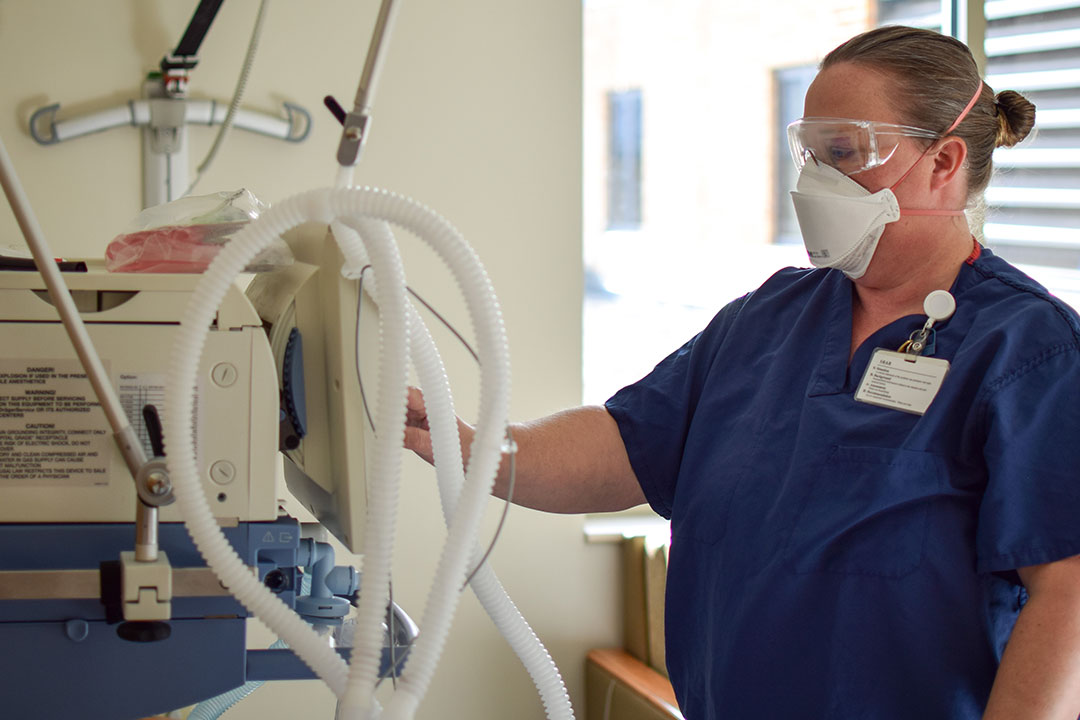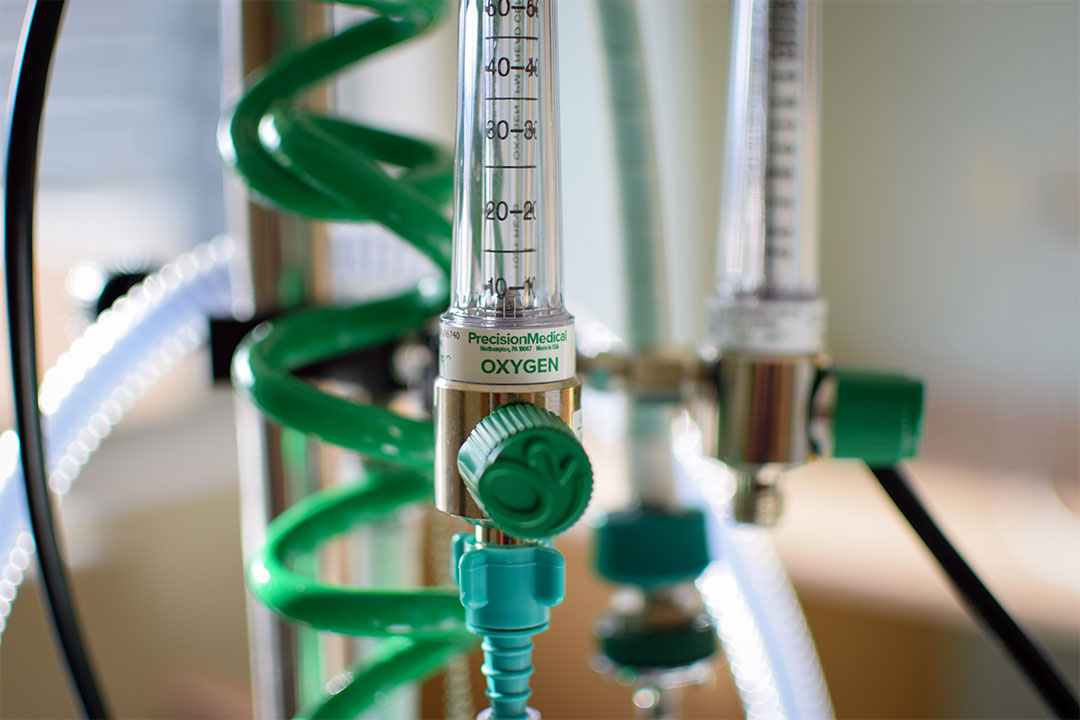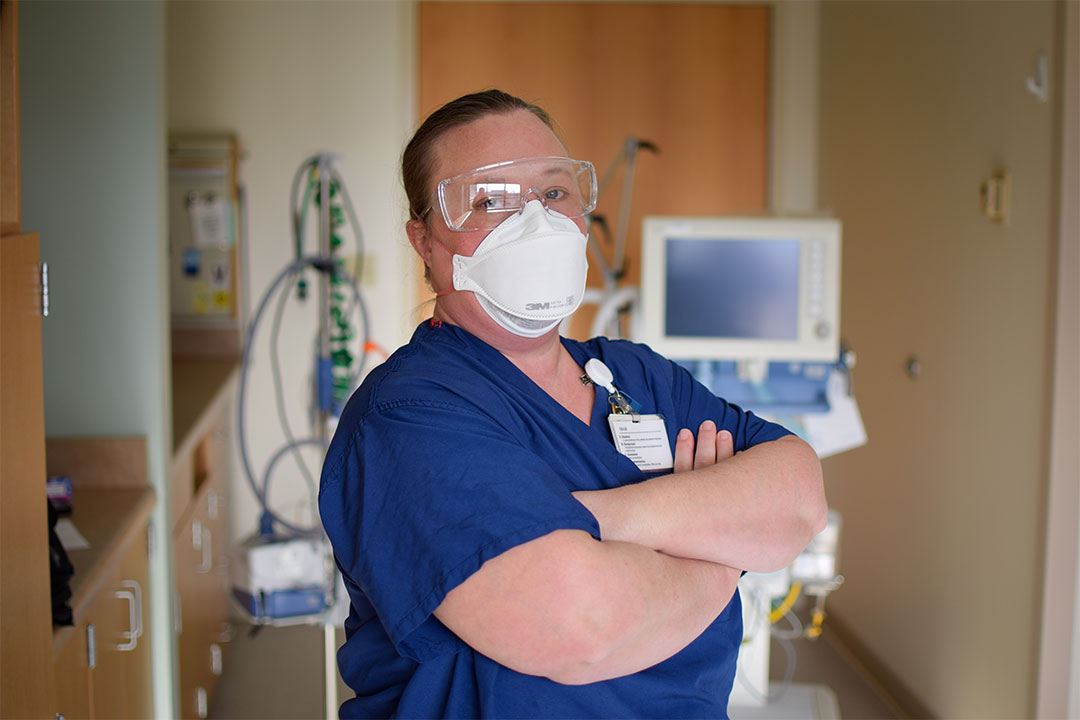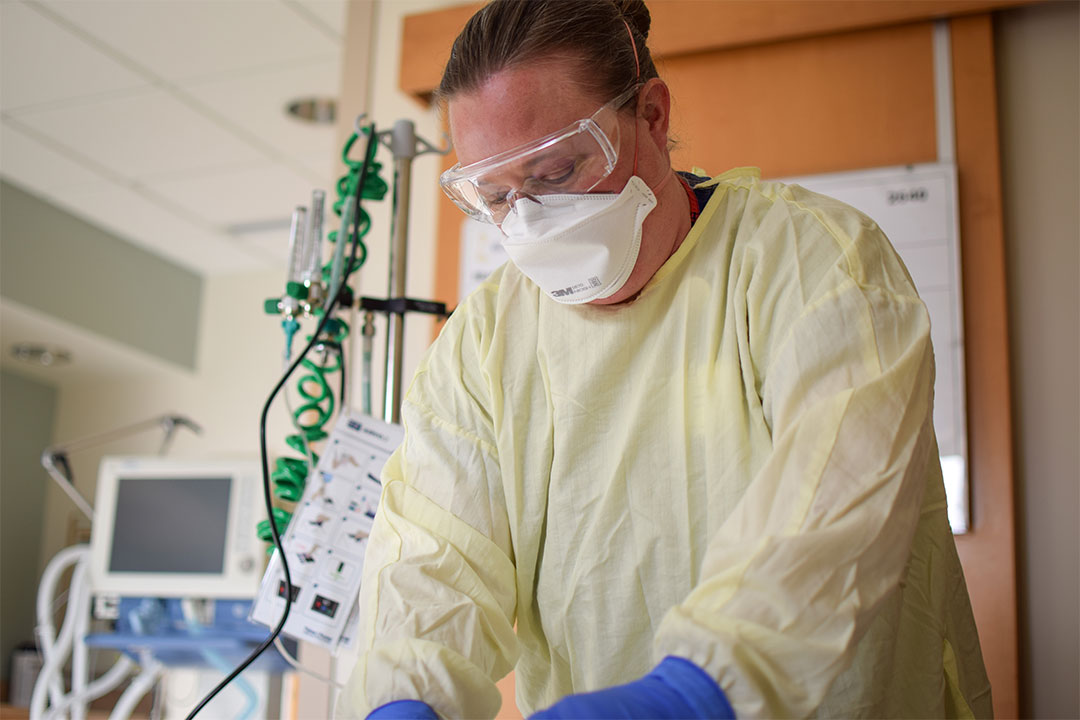The essential role of respiratory therapists during COVID-19
Like so many of the health care providers on the frontlines of this pandemic, respiratory therapists are tired. Their shifts are long and challenging, while caring for COVID patients can be emotionally draining.
"Staff walk many miles in a day, moving between the different areas of the hospital. We care for not only COVID patients, but many others as well," said Keri Ohren, a Respiratory Therapist and Director, Rehabilitation Services for Carris Health.
Respiratory Therapy
While many people may not have heard of a respiratory therapist until the pandemic, they have been an integral member of the health care team for decades. They work with patients from newborn through hospice care, helping to manage patients with breathing and airway problems. A day in the life of a respiratory therapist might include:
- Responding to emergency situations such as pre-term babies, cardiac arrests, trauma and rapid evaluations to assist with any airway issues/needs.
- Performing Pulmonary Function Tests, which measures how well a patient's lungs are functioning.
- Providing pulmonary rehabilitation and educating patients and families about lung disease, asthma or Chronic Obstructive Pulmonary Disorder (COPD) so they can maximize their quality of life.
- Managing ventilators and artificial airway devices for patients who can't breathe normally on their own.

Keri Ohren has been a respiratory therapist for 16 years. "I had a degree in Biology and my husband and I did not want to remain in the metro for the rest of our lives, so I decided to go back to school in hopes of finding a career where we could return to rural Minnesota. Respiratory Therapy wasn't a well-known profession, but it peeked my interest. I have never regretted my decision to pursue this path."
Growing Demand
As the number of patients with COVID-19 has grown, so has the demand for respiratory therapists.
CentraCare - Rice Memorial Hospital has thirteen respiratory therapists on staff. "We have a fantastic respiratory team that works hard to provide the best care possible," shared Ohren. "However, like so many other areas, staffing can be an issue due to illness, injuries and current COVID quarantining requirements. Staff have been picking up extra shifts and we are using agency staff to help with our needs."
But respiratory therapists can be hard to come by and they're in high demand. "Once we get them here, it's not a quick process to get them onboarded to learn our system."
Caring for COVID-19 patients
Respiratory therapists have a very active role in helping patients affected with COVID-19. Many patients with COVID-19 experience shortness of breath and low oxygen levels. Respiratory therapists help to manage the devices that can deliver high levels of oxygen therapy. These devices might include:
- Heated high flow nasal cannulas
- Non-invasive ventilation (wearing a tight-fitting mask and using pressures to help with shortness of breath and oxygen delivery)
- Ventilators
"We also work with nursing staff to educate the patients to try proning (laying on their stomach) as much as a patient can tolerate," explains Ohren. Proning has been shown to be beneficial in increasing a patient's oxygen levels.
"Sometimes a patient has a very severe case of COVID-19 and requires intubation and mechanical ventilation. Caring for these patients requires precise coordination between all members of the team. We monitor the various lab values, vital signs, lung pressures and work with the providers to optimize ventilator settings. If these patients also are good candidates for proning and/or inhaled medication to increase their oxygen levels, this process requires many hands, good communication, safe motions, and lots of patience. Respiratory therapists are in charge of the airway and ensure the endotracheal tube remains in place while the patient is rolled from their back to their stomach and back again."
Long-term effects of COVID-19

While most people who have COVID-19 will experience mild to moderate symptoms and recover quickly, for some, symptoms may linger or recur for weeks or months. Some patients may develop medical complications that have lasting health effects. Experts are still learning about the long-term effects of COVID-19.
"Some of our patients are discharged from the hospital on oxygen, others develop scarring on their lungs," explains Ohren. "We have received referrals into the pulmonary rehabilitation program for patients with lasting lung issues from COVID-19. There is still a lot that everyone is learning, and how each patient reacts and recovers from COVID-19 is unique."
Professional and personal challenges
The role of a respiratory therapist would have been considered demanding before the pandemic and has now become increasingly complex.
"It is much more difficult to care for patients with all of the personal protective equipment (PPE)," said Ohren. "We are used to wearing PPE for short periods of time, but now we have to wear it for most of the day. Goggles are forever fogging over, everything is hot, and it can be hard to hear with all of the extra equipment required to make rooms negative pressure."
"We work very hard to make certain staff have everything they need to provide the best care possible. On top of having to increase the amount of available staff; we've also had to increase the amount of equipment and supplies above what we would normally have."
Dealing with the stress and strain of COVID-19 for so many months also takes a personal toll on frontline healthcare workers.
"Ensuring staff don't burn out has definitely been one of our biggest challenges," explains Ohren.
"Caring for these patients is difficult, and it's emotionally draining when someone loses their battle with COVID-19, because we're doing everything we can to help them."
For Ohren personally, it has not been easy trying to find the right balance of work and life. "To help myself cope, I look for the good in each day," she says. "There is always something good that happens, even on the most difficult days. I also hug my family a lot tighter."
Making a difference

While the role of a respiratory therapist can be demanding and stressful, Ohren says the opportunity to work as a team caring for patients and making a difference in helping someone feel better is the best part of her job.
"It is so rewarding when a patient who has been on a ventilator gets better and is able to go home," said Ohren. "Some of our patients are here for an extended period of time and you develop a relationship with them. You learn about their life outside of the hospital. It's fun to help celebrate when they get discharged. The successes help the staff to keep going, even when they're exhausted.
The hospital is busy, but we are managing. There is a tremendous amount of teamwork that happens between all areas in the hospital each day. Our staff are dedicated and show up every shift to provide the best care possible. I'm proud to be part of this team."
